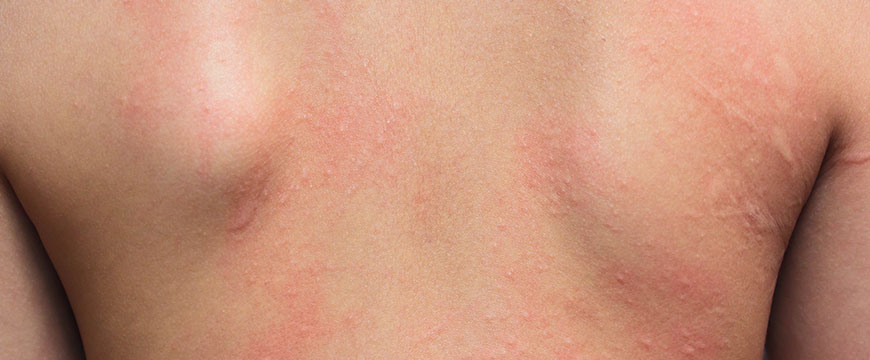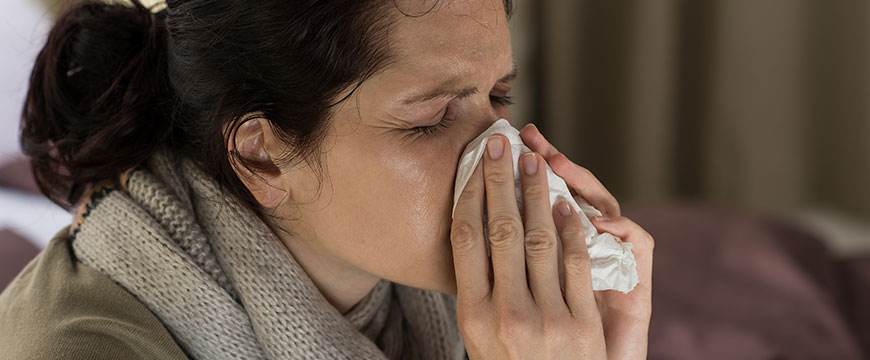
Allergies can greatly affect a person’s life. For one, he or she should avoid eating certain foods to prevent the onset of allergic reactions. Even having a pet can be a torture for allergic sufferers especially if he or she loves being with animals. If an allergic reaction occurs, it is important to consult an allergy specialist doctor immediately to avoid further complications.
Allergic reactions vary from person to person. Some may experience skin allergies, while others may experience a runny nose and constant sneezing. On the other hand, some may experience eye allergies. Eye allergies, just like any other allergic reactions, can be quite uncomfortable and even painful in worst cases.
What is eye allergy?
Also known as allergic conjunctivitis, eye allergies are pretty much a common allergic reaction. It occurs when the eyes accidentally catch something (usually a kind of allergen) and then causes a bad reaction. When a trigger comes into contact to your eyes, histamine is produced that staves off the allergen.
Unlike different types of conjunctivitis, allergic conjunctivitis is not contagious. The allergy sufferer experience red, itchy, and swollen eyes. Sometimes, the allergic reaction can even be painful and make your eyes teary. Meanwhile, some people may even experience nasal allergies in connection to their eye allergies.
Types of eye allergies
There are also different types of eye allergies which should be treated by an allergy physician as soon as possible. These include the following.
Seasonal and perennial allergic conjunctivitis (SAC and PAC)
SAC occurs certain times of the year depending on the prevalence of air pollens. Those with SAC often experience common symptoms such as itching and redness of eyes. Likewise, they mostly have dark circles under their eyes and experience puffy eyes when allergies attack. On the other hand, PAC is milder than SAC yet it occurs throughout the year. Unlike SAC, PAC is usually caused by pet dander and dust mites instead of pollen.
Vernal keratoconjunctivitis
This is considered a more serious condition than the abovementioned conditions. It occurs throughout the year, but it may worsen in specific seasons. If left untreated by an allergy doctor, it can lead to vision loss.
Atopic keratoconjunctivitis
This usually affects the elderly especially those with allergic dermatitis. It can cause itching and a burning sensation on the eyes as well as the excessive production of mucus that can shut your eyes when you wake up in the morning. In worse cases, it can also lead to corneal damage.
Causes and symptoms
In case you experience symptoms of eye allergies, it is best to consult an allergy physician to help manage your condition. There are also a lot of allergy clinics you can go to if you experience common allergic symptoms. Allergic conjunctivitis can be triggered by different types of triggers such as:
- Dust or smoke
- Pollen
- Molds and spores
- Pet dander
- Perfumes and other scented items
- Certain foods
- Eye products such as eye drops
- Cosmetic products
- Drugs and medications
In other words, triggers of eye allergies are most likely airborne. However, there are some triggers that are not necessarily airborne. This may include eating certain foods or using eye products with ingredients that may cause allergic reactions. If you experience any allergic symptoms, you can also let an allergist doctor know possible triggers that may have caused your eye allergies.
If you come into contact with the abovementioned triggers, it can result in mild to severe allergic reactions. In some cases, you may experience an itchy or burning sensation in your eyes as well as light sensitivity. You may also notice watery discharge in your eyes after coming into contact with possible triggers. Eye allergies may also be passed on from parents.
Treatment and Relief
One logical way to avoid the onset of eye allergies is to prevent contact with its common triggers. Here are some tips to minimize, if not completely avoid, triggers that cause eye allergies include the following.
- As much as possible, stay indoors especially during the peak of pollen count which is usually around early evenings and midmornings.
- If you need to get out during the day, make sure to wear sunglasses to prevent pollen from coming into your eyes.
- Never rub your eyes when it feels itchy. Instead, wash your eyes with running water.
- Clean your electric fan and air conditioning unit regularly.
- Find an allergy doctor in Manassas VA to treat your eye allergies.








